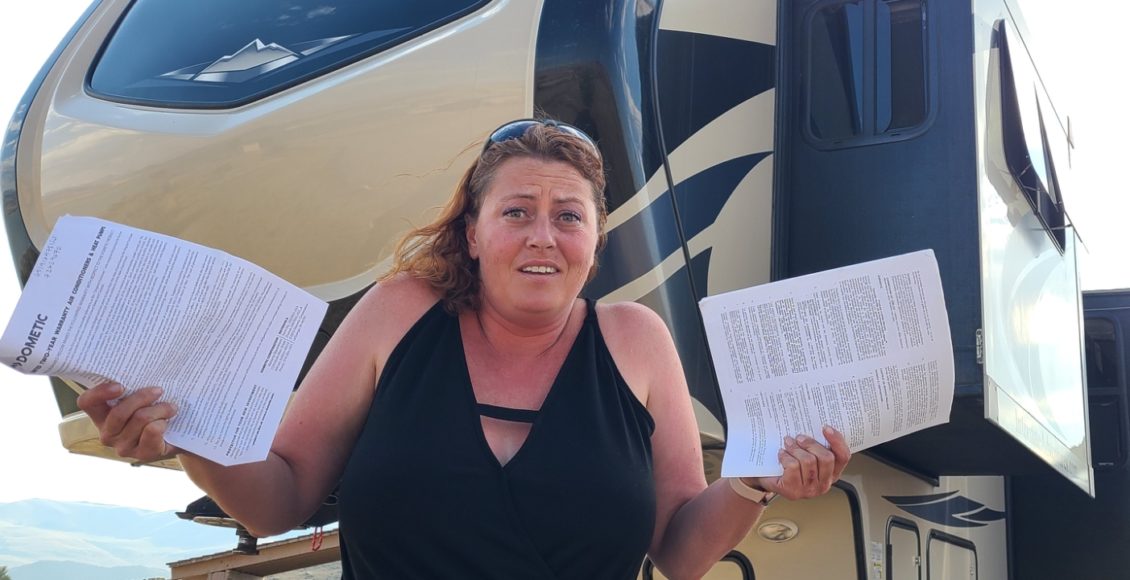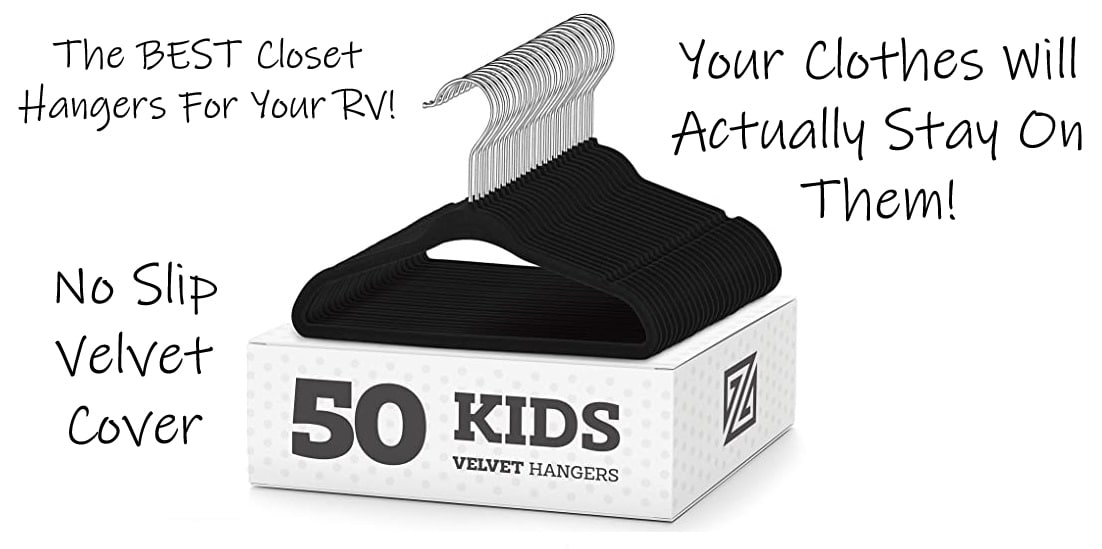Full Time RV Insurance or Full Time RV Warranty?

Just the other day I received a text from a friend, and fellow RV Full Timer asking what insurance carrier we used for our RV insurance. Turns out she has another friend who is beginning her Full-Time RV journey and was just asking around to see what options others were using.
During the conversation it came out that when her friend was purchasing her RV the salesman told her that she didn’t need insurance specific for living full time in it because she had purchased the extended warranty.
Now, I’m no genius, but I know that isn’t right. We did get the RV Newbie all straightened out, but it really got me thinking that this is something that I’m sure more than one person has heard, and I really needed to bring attention to it!
Many people don’t know this, but a lot of manufacturers will void any warranty on your RV if you live in it full time. In some cases, even if it is a semi-permanent home, like you winter in Florida in your RV and still have a stick and bricks home in Montana.
If you reside in your RV for more than just a little get-away, there is a high likelihood that you have voided any and all manufacturers warranties, even an extended warranty! Unfortunately, salesman don’t tell you this.
Let’s be honest here, the salesman is going to get a commission on every product he upsells you, to include the extended warranty that likely became void the minute you parked the camper and moved in. I don’t mean to say that all salesman are bad people, or that they’re intentionally putting blinders over your eyes to get you to buy something else. In some cases, I truly believe that the salesmen don’t even know this.
Truthfully, very few people sit there and read an entire contract word for word before signing it. Sadly, we tend take the word of the person sitting across the desk who has been, “so honest and friendly.” They said it covers everything.
Why would they lie? Maybe they aren’t lying, maybe they don’t know either. Isn’t it plausible that they’re just repeating what their boss told them?
Before selling everything and moving into your RV Full Time, there is a lot of research to do. But you also need to know what needs to be researched. Sometimes ignorance is bliss, but other times, it just bites us in the you know what. But your warranty and insurance coverage should be one of those items on your list to look into in detail.
Let’s say you do find a manufacturer that has a good warranty for a Full Timer. Great! But back to my acquaintance from above, does purchasing the extended warranty negate or change the insurance policy you have on your new home? I think this is a perfect opportunity to point out – We really need to stop referring to the RV, as just an RV.
If you are moving into it, it needs to be referred to as your HOME. Just like when you purchased your stick and brick home, you had insurance on it, and maybe you purchased a home warranty. The same holds true to your new traveling home. Both of those policies will cover different things. Is it possible there is some overlap in coverage, yeah, maybe. But generally speaking here, they do different things.
A warranty may cover the parts and labor if a slide cable breaks on you. But is it going to cover a place for you to stay while the RV is in being repaired, probably not. The right insurance policy will though. A warranty will also cover if your cabinet latches aren’t holding, or your refrigerator randomly breaks. Your insurance carrier doesn’t care about those things. They’d likely laugh at you if you called to open a claim for them.
If you are living in your RV Full Time, you need a Home Owners Insurance Policy on your new HOME. Just like you needed on your house. If someone breaks into my home and steals my stuff, the warranty I purchased at the dealership doesn’t mean anything. My Home Owners policy on the other hand, will provide me with monetary compensation for the value of the belongings that were stolen.
In an even worse case scenario, if my home caught fire, or we were in an accident driving down the road while towing, the insurance company would again provide me financial compensation for my loss. I don’t know any manufacturer warranty that is going to do that.
I really hope this brings a little clarity to the subject, because I was pretty distraught thinking about my friend being steered the wrong way and not even knowing it was happening. The bottom line here, unless you plan to do all of your repairs on your own… You need both a Full Time RV Living Warranty AND a Home Owners Insurance Policy.
And don’t just trust the really nice salesman, do your own research and make sure you know what type of warranty and insurance policy you are purchasing before you procure them.



